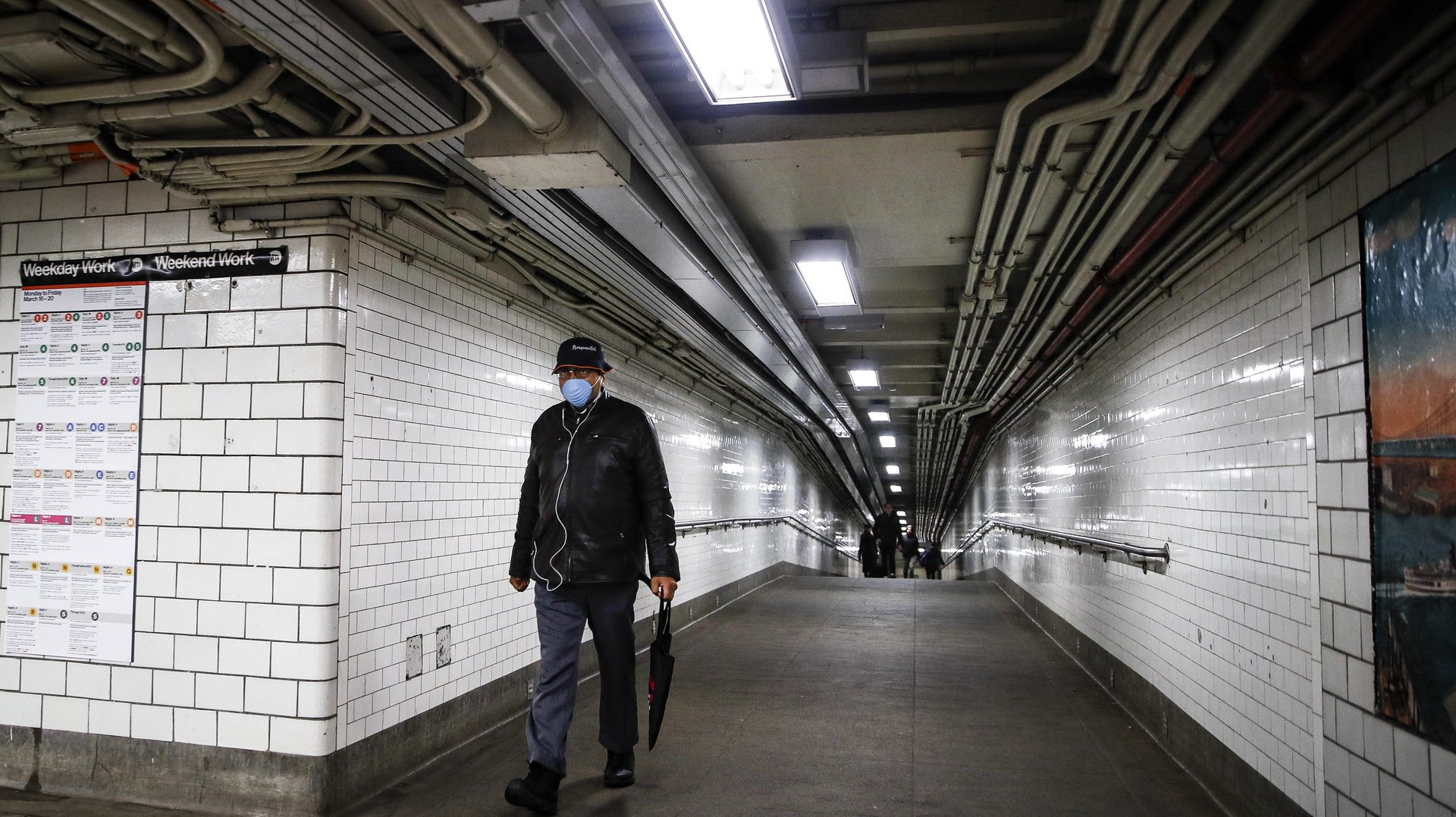Behave like you have coronavirus
Two-thirds of Covid-19 infections could be spread by people whose own infections are undetected, according to new research in the journal Science.


Two-thirds of Covid-19 infections could be spread by people whose own infections are undetected, according to new research in the journal Science.
Public health scientists at Columbia University used a mathematical model, packed with travel data and the latest information on the incubation period and infection rate of the novel coronavirus, to simulate the outbreak during its early days in the city of Wuhan. They found that before the Chinese government restricted travel in and out of Wuhan, up to six out of seven cases of Covid-19 likely went undetected.
Those cases most likely flew under the radar, said co-author Jeffery Shaman, professor of environmental health sciences at Columbia University’s Mailman School of Public Health, because, as previous research has concluded, the disease presents mild or no symptoms for most people. The model shows that undetected cases were responsible for the lion’s share of the spread of infections in Wuhan—powerful evidence that testing and social distancing may be essential even for people who don’t feel sick.
After China put travel and testing measures in place, officials became able to detect the majority of cases, the researchers found. But Shaman said that in most other countries where travel restrictions have been less tight and testing less widely available, including in the US, the actual number of Covid-19 cases is likely five to 10 times higher than what is officially reported. That could put the global total above 1.5 million.
“We know this is just the tip of the iceberg,” Shaman said in a press conference Monday. “The question is how much of the iceberg is submerged. We can argue about the exact number, but if you’re not in a place where you’re not proactively looking for people and testing, then the majority of infections will go undetected.”
The results show that widespread testing is essential to track the scale of the outbreak and keep infected individuals from unknowingly committing “stealth transmission,” Shaman said. So far, there have been around 23,000 Covid-19 tests performed in the US, according to the CDC. But that’s an order of magnitude lower than South Korea, which has one-sixth the population. Some experts think the US will ultimately need tens of millions of tests.
The findings also confirm the importance of social distancing even for people who don’t feel sick—for an average person, more likely than not, if you get Covid-19, you won’t know it, but you’ll still be able to pass it on. That message was echoed Sunday night in a tweet from New York City’s Department of Health: “Everyone in NYC should act as if they have been exposed to coronavirus.”